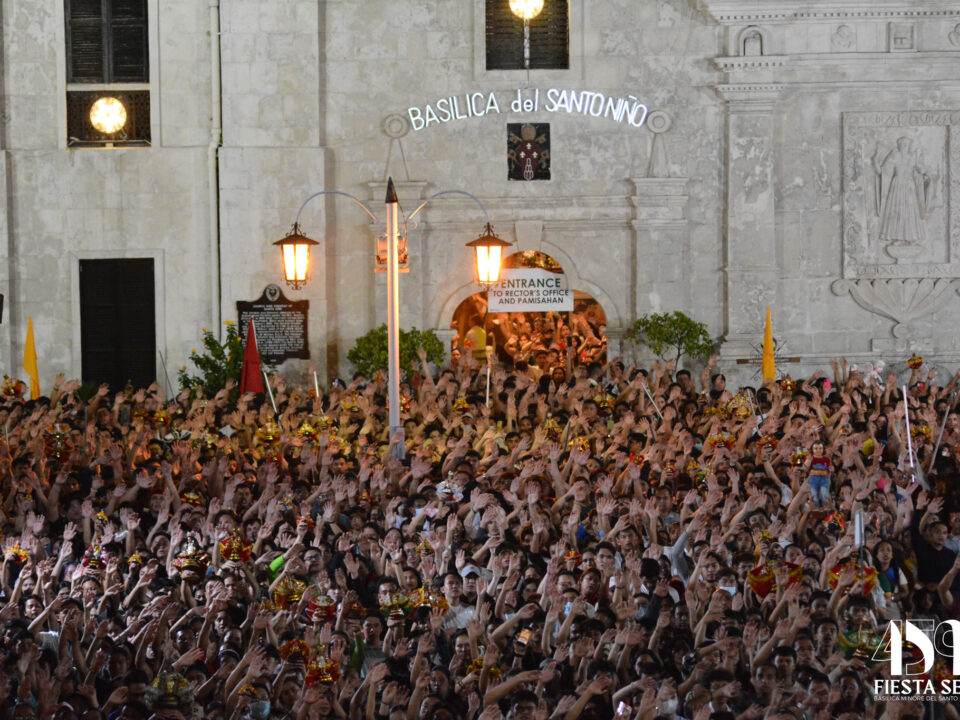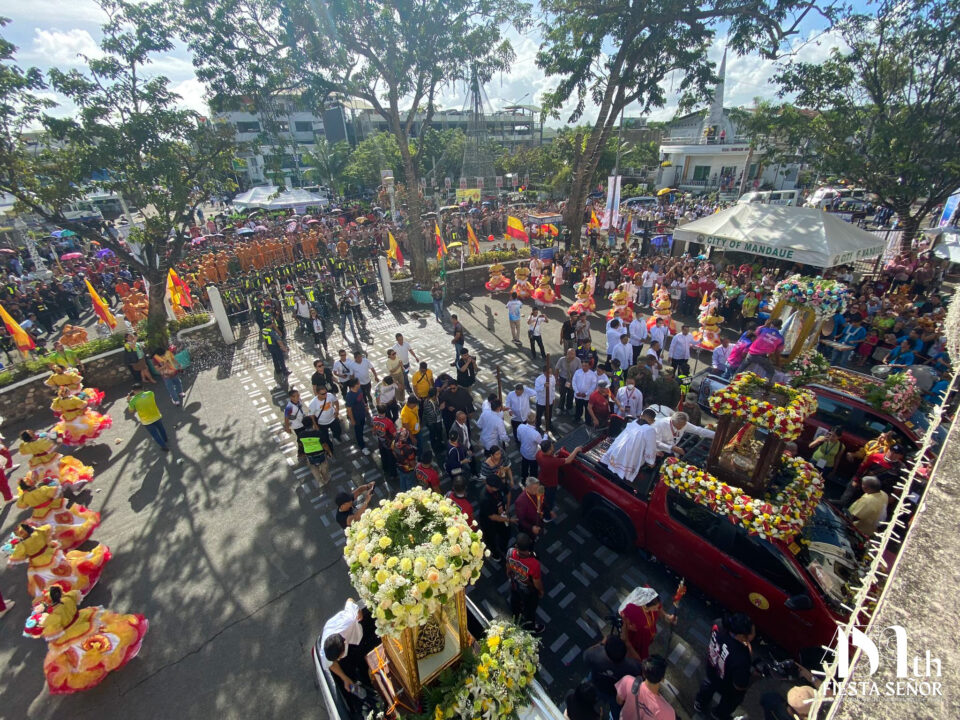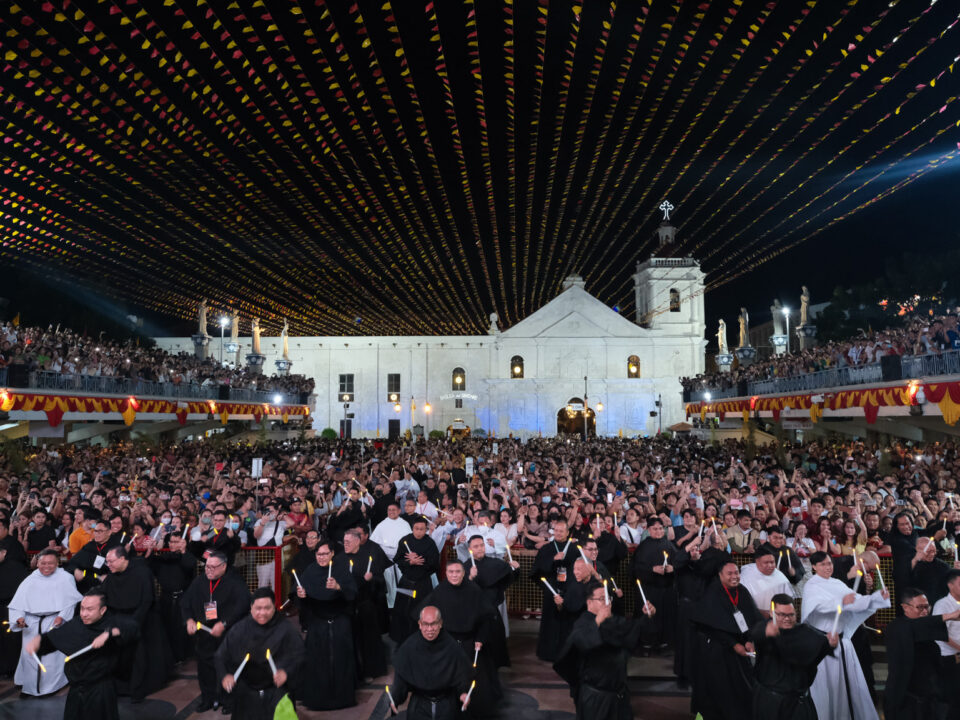Development of the Santo Niño devotion
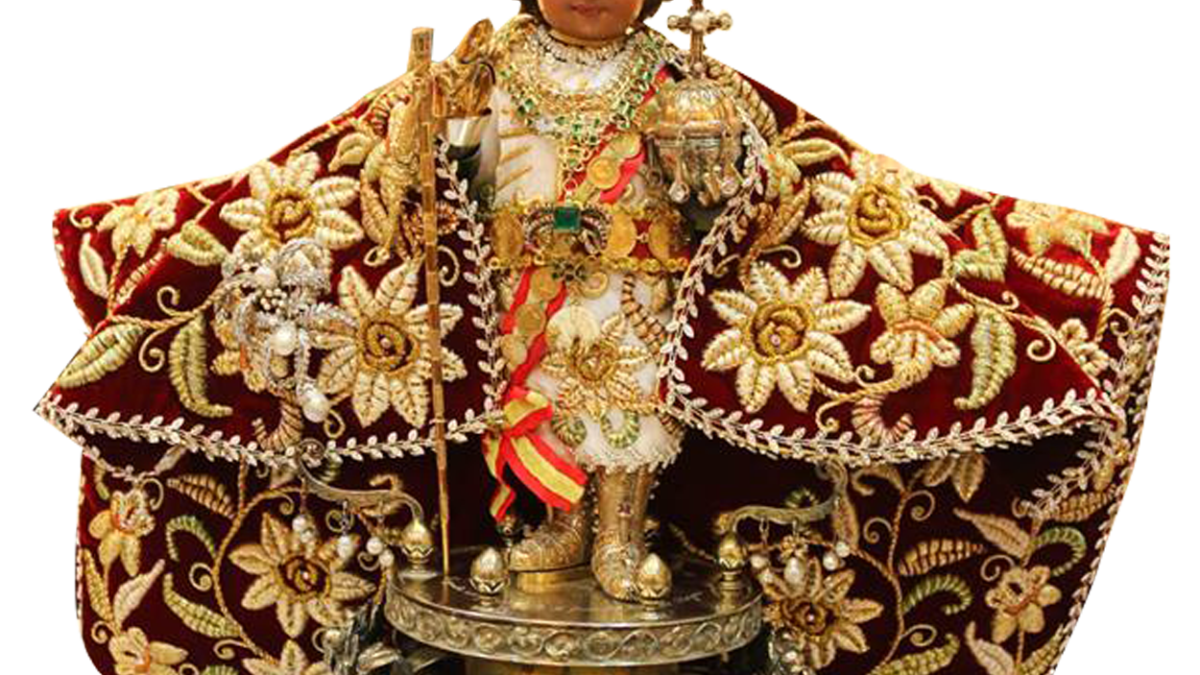
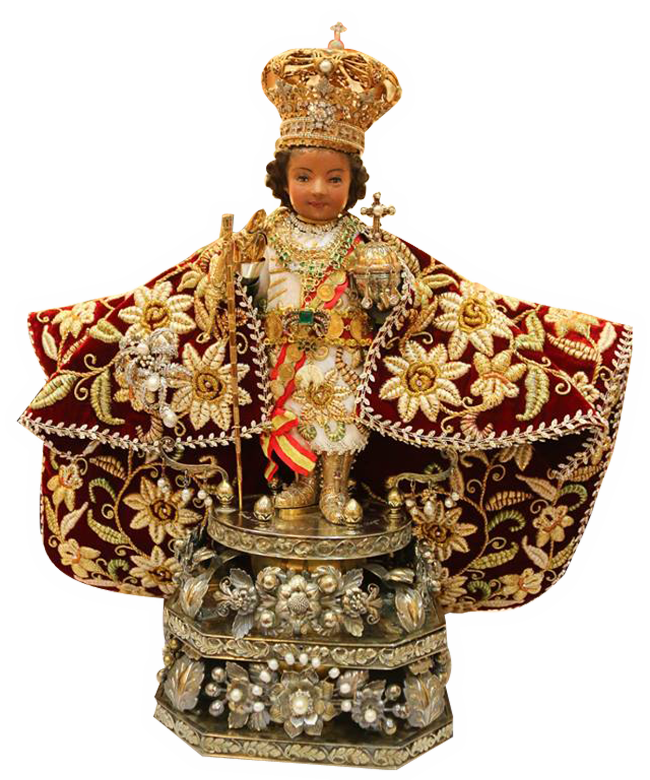
1521
Ferdinand Magellan’s arrival; planting of the Cross of Catholicism on the shore of ancient Cebu. The cross of Magellan is enshrined on the present kiosk on Plaza Sugbo which was formerly the starting point of Magallanes Street. In 1834, then bishop of Cebu (1829-1840), Santos gomez Marañon, OSA renovated the facility.
Introduced Christianity and administered baptism including the local chieftain, his queen and their subjects. Wooden statuette was given to the queen as she wished to replace her idols. According to Pigafetta’s account three images were presented to her namely; the image of the Our Lady holding her child, a cross, and the Santo Niño, (emphasis is directed to the Blessed Virgin’s description to refute a misrepresentation that it was the image of the Our Lady of Guadalupe).
1565
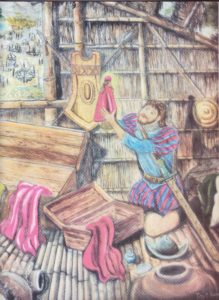 Legazpi-Urdaneta expedition’s arrival in the Philippines April 28, Juan de Camaus discovered the iamge in one hit spared by the blaze believed to be the same statuette brought by Magellan.
Legazpi-Urdaneta expedition’s arrival in the Philippines April 28, Juan de Camaus discovered the iamge in one hit spared by the blaze believed to be the same statuette brought by Magellan.
Encased in a wooden (pine) chest among cloths and flowers, with a cape of hemp, 16th century Flemish origin, approximately 11 inches in height, flounced/ruffled shirt, red damask dress, velvet flamenco cap, chain/collar with small cross, small sphere/globe in one hand, 2 fingers raised in another.
General Legazpi, the Augustinian friars and the entire army held a solemn procession to a provisional church and enthroned the image on a makeshift altar and vowed a yearly commemoration of the finding.
The Cofraternity was established in honor of the Most Holy Name of Jesus.
Fr. Andres de Urdaneta, OSA celebrated mass at the start of the allotment for the first church and convent dedicated to the Holy Child and the Augustinian Province of the Philippines.
The Sto. Niño Church (present Basilica) has always been the sanctuary of the image since its discovery.
1572
Invention of the Ecce Homo started a popular piety however its fame diminished with the expanding Santo Niño devotion.
1578
The Prior Provincial recommended to all friars that prayer to the Santo Niño be offered every month as it was the custom before.
1641
The Prior Provincial ordered celebration of the feast of Santo Niño every January 14.
1683
The 1578 recommendation was reaffirmed.
1689
Fr. Prior Nicolas de la Cuadra, OSA was instrumental in spreading the devotion to the Santo Niño. He established the solemn rites in the sanctuary, acquired jewels for the decoration of the image.
1740
January 16, the Santo Niño image was enshrined at the altar of the new church (present structure constructed from 1735-1739) with religious and civic festivities that lasted for 8 days.
1773
Jesuit Provincial, Fr. Egidio Vibau, noted that the sanctuary was the most famous, renowned in all the islands, where many people come to pay homage to the sacred image during solemn feasts.
1889
Fr. Rector, Mateo Diez, OSA, introduced te 1st novena to the Santo Niño under the Cebuano title “Novena ug Pagdayeg sa Sto. Niño Jesus nga guisimba sa Syudad sa Sugbu” printed in Guadalupe, Asilo de Huerfanos, 1888. According to another account perhaps the 1st was introduced around the year 1750. At least 8 editions came into print.
1944
During the WWII, a bomb hit the church but the Sto. Niño was found unscathed. The friars brought the image to the redeptorist Church in cebu for safekeeping.
1958
The [present perpetual novena was introduced by Fr. Restituto Suarez, OSA.
1964
Pilgrimage/visits of the image in preparation for the quadricentennial celebration Restoration of the Hermano Mayor tradition during the fiesta of Santo Niño
1965
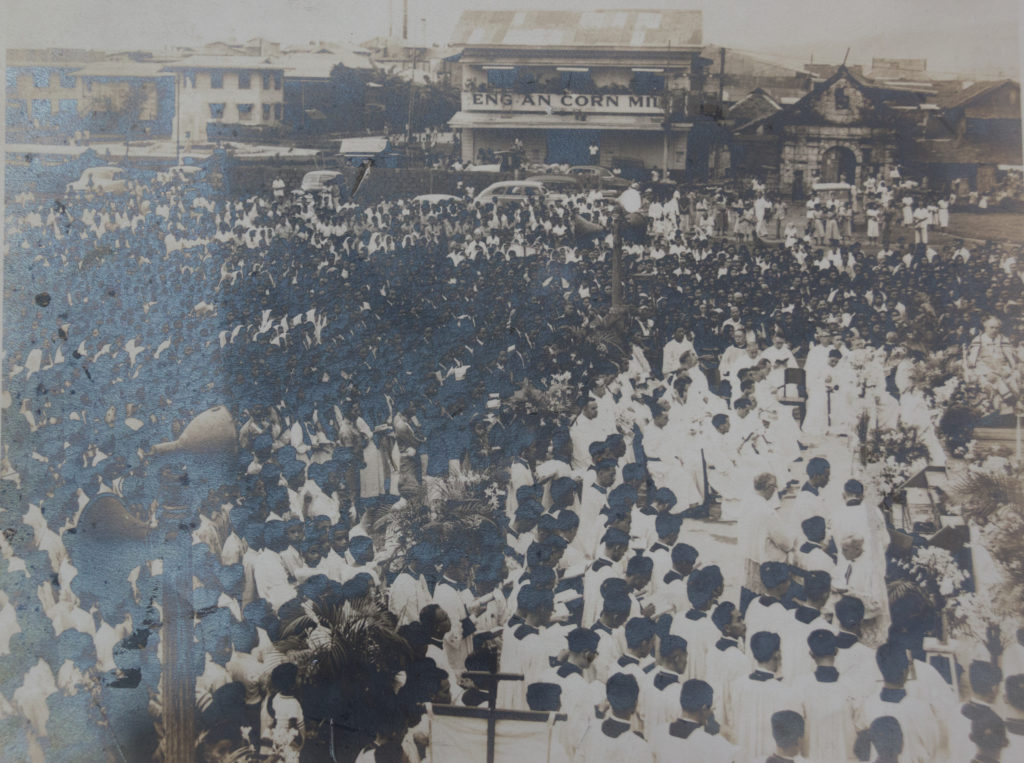 4th centennial celebration of the Christianization of the Philippines.
4th centennial celebration of the Christianization of the Philippines.
Major renovation of the church and convent of the Santo Niño.
The Church was elevated to the rank of the Basilica Minore, privilege granted by Pope Paul VI through the papal decree Ut clarificetur nomen Domini dated April 1, 1965.
Canonical coronation of the Santo Niño image by the papal decree Cunabula religionis dated February 27, 1964.
The collection of Santo Niño memorabilia started.
1972
Santo Niño pilgrimage in Ilocos Norte for 24 days
1973
Basilica del Santo Niño was declared a National Shrine the Santo Niño even during celebrations inside the basilica as devotees kept multiplying.
1975
Fr. Rector, Restituto Suarez, OSA, spearheaded the construction of the marble side chapel for the public veneration of Santo Niño de Cebu image and devotion antedated that of Tondo (Manila) 1572, and Arevalo (Iloilo) 1581.
1980
Sinulog Festival, an offshoot of the traditional sinulog celebration at the basilica, was formally launched.
1981
Pastoral Visit of Pope John Paul II
Image was brought to the template in Lahug for the celebration.
1983
Canonical erection of the Augustinian Province of Santo Niño de Cebu-Philippines
1984
Inauguration of the new Augustinian Province
At least 27 chapters including one in New York and San Francisco
1988
Children’s Mass was introduced and assigned to the Colegio del Santo Niño
1989
The GOZOS to Senyor Santo Niño was officially incorporated into the novena-mass. Contemporary version with 4 stanzas is said to be introduced in the early 1990s with translations in Tagalog, Bicolano and English to date. A shortened form of an older version in 9 stanzas which was printed on devotional booklet “Taming sa Calag” first published in 1921 but manuscript form was approved for printing in 1907. Fr. Valerio Rodrigo, OSa (first director of Colegio del Santo Niño, 1904 and Prior of Santo Niño, 1918-1922) included the 9-day novena to Santo Niño with the traditional gozos. At least 10 editions (1959) were published.
1989
Fr. Apolinario Mejorada, OSA spearheaded the repainting of the main altar retablo of the Basilica Church with a combination of cream and gold colors and installed glass chips and reflector lights. The project costed 85,000.00 pesos, which was sponsored by Doña Beatriz Vda. de Durano. It was completed and launched on August 27, 1989 on the ocsasion of the launching of the 1990 Grand Anniversary Celebrations. (Added on October 24, 2023).
1990
The Santo Niño novena was integrated into the Mass
1992
The last occasion the antique image of Santo Niño was brought out for the solemn foot procession.
Pilgrim center was opened to the public to accommodate the growing number of pilgrims and devotees.
1995
Basilica del Santo Niño Museum was formally inaugurated
1996
Pilgrimage of the Santo Niño image to the holy Land (Israel) with the Fr. Rector Bernardino Ricafrente, OSA
2004
Creation of the Basilica del Santo Niño Children’s Welfare Foundation, Inc. (BSNCWFI)
2005
Candle-lighting area was transferred outside the Basilica
2007
Week-long Kaplag Festival was organized which included the re-enactment of the finding of the Santo Niño
HUNIÑO songwriting competition was launched to collect new Santo Niño liturgical songs
2008
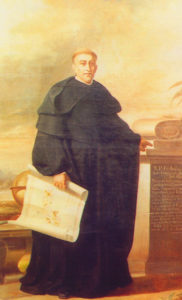 5th Centenary of the birth of Fr. Andres Urdaneta, OSa, President Gloria Macapagal Arroyo declared 2008 as “Year of Urdaneta” thru Presidential Proclamation No. 1423.
5th Centenary of the birth of Fr. Andres Urdaneta, OSa, President Gloria Macapagal Arroyo declared 2008 as “Year of Urdaneta” thru Presidential Proclamation No. 1423.
Blessing of the Santo Niño Spirituality Center in Consolacion, Cebu by the Prior General Robert F. Prevost, OSA.
2009
Pastoral visit of the image of Santo Niño to the parishes of Pililia, Rizal; San Pascual, Batangas; and CPG, Bohol.
Santo Niño de Cebu Augustinian Social Development Foundation, Inc. was established
2010
Introduction of the environmental Mass into the 9-day novena
The solemn foot procession has become the reference point for crowd estimate; 1.5 to 2 million devotees joined the Fiesta Señor Solemn Foot Procession.
More than 30 local chapters of the Cofradia del Santo Niño are officially registered
2011
Revival of military/naval honors to the Santo Niño as El Capitan General
Official banner/flag of the Santo Niño as Capitan General was used for the first time
Official visit of the Santo Niño to the Diocese of Naval (Biliran)
2015
450th anniversary of the finding of the image of Señor Santo Niño.
Pilgrimage of the Santo Niño to Luzon, Visayas and Mindanao.
2016
Cardinal Bo, Papal legate to the 51st International Eucharistic Congress held in Cebu City celebrated a Holy Mass at the Basilica.
2017
33rd National Convention of Cofradia del Sto. Niño on May 5-7 at Tagum City, Davao del Norte with 461 delegates and 24 priests; 16 new chapters of Cofradia were created since July 2016 and with the presence of 2 delegates from Singapore Chapter.
Rev. Fr. Arnel Dizon, OSA
Published in Fiesta Señor 2011 Souvenir Program.



